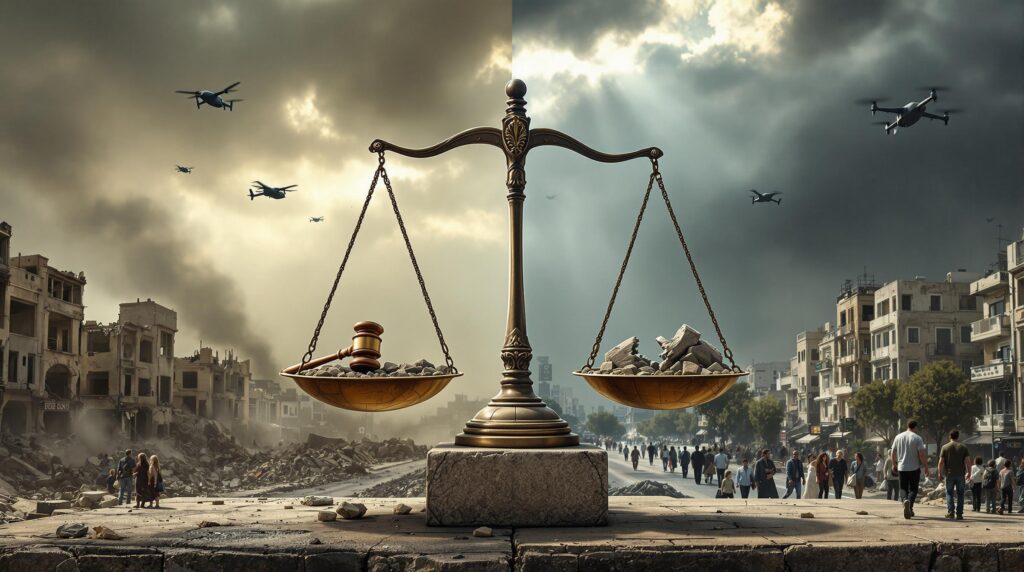Amid yet another devastating cycle of violence, the harrowing images from Gaza serve as a grim reminder of the seemingly endless conflict. Once more, powerful global voices like the United States weigh in, casting blame, highlighting entrenched hostilities, and tragically underscoring just how fragile peace negotiations can be. Getting lost amidst the flurry of accusations is the stark human cost—hundreds of Palestinian lives, now lost to renewed Israeli strikes.
The United States Positions Itself Firmly
In the wake of the violence, the United States was quick to identify Hamas as the primary culprit, asserting that the responsibility for the unfortunate collapse of ceasefire negotiations lies squarely with the Palestinian militant group. US Special Envoy Steve Witkoff, known for his involvement in bridging previous diplomatic gaps, had reportedly placed a ceasefire extension proposal on the table. According to spokespersons from the State Department, Hamas’s outright rejection of Witkoff’s initiative precipitated the breakdown, leading directly to renewed hostilities.
Crucially, the message from Washington remains unambiguous: the tragic deaths recorded in the latest attacks were entirely avoidable. Addressing the international community, the US representation at the United Nations underscored that Hamas rejecting the peace overture not only re-ignited hostilities but also consolidated a narrative in which Hamas, not Israel, shoulders the blame—a stance aligning strongly with longstanding US policy of supporting Israeli actions in self-defense.
Hamas and Middle Eastern Allies Speak Out
But across borders in Gaza, voices assert a vastly different truth. Accusing the United States of complicity, Hamas places blame squarely at Washington’s doorstep, claiming that US awareness and tacit support of Israeli military actions directly contributed to civilian atrocities. This narrative is echoed by regional players such as Iran, whose Foreign Ministry has condemned what they term as “a continuation of genocide and ethnic cleansing,” explicitly criticizing the US as an enabler of these violent escalations.
Yet, beyond the geopolitics is an even more troubling facet: the humanitarian catastrophe unfolding in Gaza. As bombings shatter neighborhoods, hospitals swarm with desperate families and overwhelmed doctors who scramble to save lives amidst severe shortages of medical supplies—conditions starkly corroborated by international organizations like the Red Cross and the World Health Organization. Their reports highlight not only the immediate devastation but the ongoing agony imposed on an already strained population, ultimately challenging the morality of continuing cycles of violence and retaliation.
Israel’s Hardline Stance and Its Ramifications
From Israel, under Prime Minister Benjamin Netanyahu’s directive, a resolute and uncompromising military strategy has underscored the Israeli Defense Force’s (IDF) operations. Netanyahu declares that hostilities will persist as long as Hamas retains Israeli hostages—a posture signaling clearly to international observers a hardened resolve, irrespective of global censure. Notable Hamas officials became explicit targets, with strikes reportedly neutralizing key figures like government head Essam al-Da’alis and minister Mahmoud Marzouk Ahmed Abu-Watfa.
“As dramatic scenes unfold, the burning question remains whether anyone, on either side, truly emerges victorious or if peace simply drifts further beyond reach.”
Reflecting internationally, from Türkiye’s ruling AK Party to neighboring Arab states, condemnations swell against what they describe as Israeli excess. Strident voices from these corners call for accountability, sidestepping Israeli justifications searching for lasting and peaceful solutions instead of military reprisals. AK Party officials specifically emphasize the moral and human obligation to address what they term “state-sponsored genocide,” intensifying calls to bring perpetrators to justice.
Envisioning a Path Forward
Yet, even amidst pain and recrimination, hope perseveres that renewed global attention and diplomatic pressure can eventually lead towards lasting peace. This current phase of violence accentuates glaring weakness in international conflict resolution efforts—particularly by mediators such as the US, Egypt, and Qatar—who have found limited success in addressing underlying grievances or delivering tangible results.
Critically, the enduring stalemate reinforces the need for fresh dialogue and renewed commitment to genuine resolution strategies, emphasizing diplomacy over force and collective well-being over cycles of retaliation. Questions linger: Can international communities overcome entrenched positions to facilitate meaningful peace talks? Could alternative diplomatic voices emerge to redefine frameworks for resolution?
As global citizens grapple with unfolding news, recognizing the deep suffering on both sides becomes not only a humanitarian imperative but a profound call for compassionate and robust international engagement. Only by prioritizing peaceful, inclusive, and justice-oriented approaches can the cycle of accusation, retaliation, and suffering finally see a decisive end.

